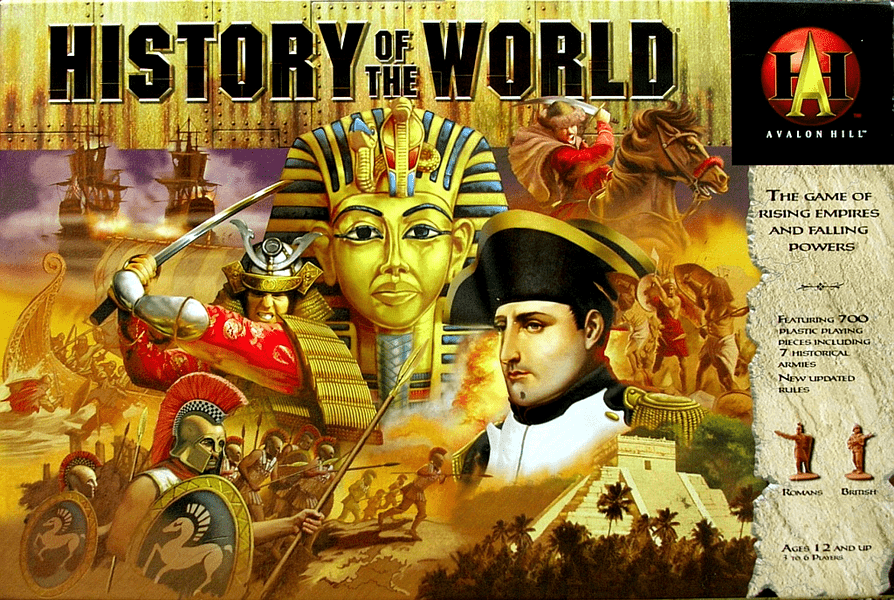History of the World (1991) Board Game
History of the World is a classic board game that was first released in 1991 by Avalon Hill. It was designed by Gary Dicken, Steve Kendall, and Phil Kendall, and features artwork by Charles S. Jarboe Jr., Steve Kendall, Jason Spiller, and David Walker. The game falls under the civilization category and is known for its strategic gameplay and historical theme.
Game Components of History of the World
How To Setup History of the World
Setup involves placing the game board in the middle of the playing area, shuffling and distributing the empire and event cards, and each player selecting an empire to play. The board is divided into regions and territories, and players start by placing their army tokens according to the empire they have chosen. The event deck is prepared, and the game is ready to begin once all components are distributed and the initial turns are explained.
Gameplay Mechanics and Game Objective
Player Experience
Playing **History of the World** is an immersive experience that combines strategy with historical context. Players must balance the expansion of their empires with the need to defend their territories. The game is known for its complexity and depth, requiring players to make strategic decisions that reflect the historical periods they are playing through. The interaction between players is significant, as passing event cards and competing for territories adds a social and competitive layer to the game.
Pros
Cons
Personal Thoughts on History of the World
**History of the World** is ideal for players who enjoy grand strategy games and have an interest in history. It is a game that rewards strategic thinking and historical knowledge. The game’s complexity and playtime make it more suited for dedicated board game enthusiasts rather than casual players. However, for those who invest the time to learn and play it, **History of the World** offers a rich and engaging experience that spans centuries of human civilization.
We are supported by our audience. When you purchase through links on our site, we may earn an affiliate commission, at no extra cost for you. Learn more.

